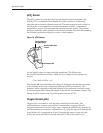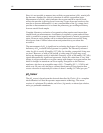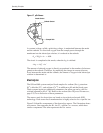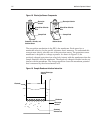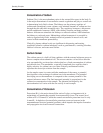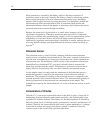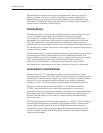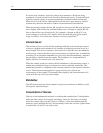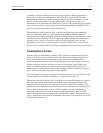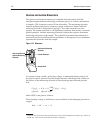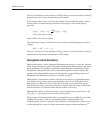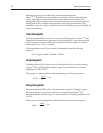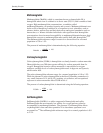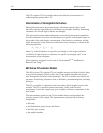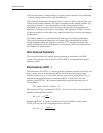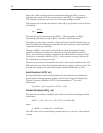
Operating Principles IĆ19
A number of factors influence the level of blood glucose. Dietary intake has a
direct effect of glucose concentration. Blood levels of glucose will fluctuate
depending on nutritional condition and the time of day when a sample is taken.
Insulin, a hormone produced by specialized cells in the pancreas, plays an
important role in regulating the blood level of glucose. By promoting glycogenesis
(conversion of glucose to glycogen) and by increasing the permeability of cells to
glucose, insulin can decrease blood glucose levels.
Determining the blood glucose level is helpful in diagnosing many metabolic
diseases. Hyperglycemia is usually equated with diabetes mellitus where the
pancreas fails to supply sufficient insulin to control glucose levels. However, other
conditions such as Cushing’s disease, hyperthyroidism, pancreatitis, and diuretic
therapy can also cause an increase in glucose levels. Hypoglycemia is most
frequently caused by over administration of insulin. Other causes of low blood
glucose levels include Addison’s disease, hypopituitarism, and severe liver disease.
Concentration of Lactate
Lactate acid is an intermediary product of the anaerobic metabolism of glucose.
Glycolysis is the term commonly used to describe the conversion of glucose to
lactic acid. Under normal circumstances, glycolysis occurs during muscle
contraction where the rate of metabolism outpaces the oxygen supply in the cells.
During strenuous exercise, the level of lactic acid increases significantly and
passes to the blood where it is transported to and metabolized by the liver. In
normal aerobic conditions the lactic acid is readily oxidized in the cell to pyruvic
acid, which is eventually degraded to CO
2
and H
2
O.
The concentration of lactate in the blood is affected by the rate of production, the
rate of metabolism, and the availability of oxygen at the cell level.
Determining the blood lactate level is helpful in assessing the supply of oxygen at
the tissue level. Increased oxygen deprivation causes the normal oxidation of
pyruvic acid to lactate and can cause severe acidosis called lactic acidosis. This
condition is characterized by increased lactate levels and increased lactate:pyruvic
ratio in the blood due to the lack of cellular oxidative process. Additionally,
increased lactate levels are seen in hypoxia with hypoxemia as seen in shock,
cardiac decompensation, and pulmonary insufficiency. Finally, because the liver
plays a significant role in lactate metabolism, decreased liver perfusion will result
in increased lactate levels.



